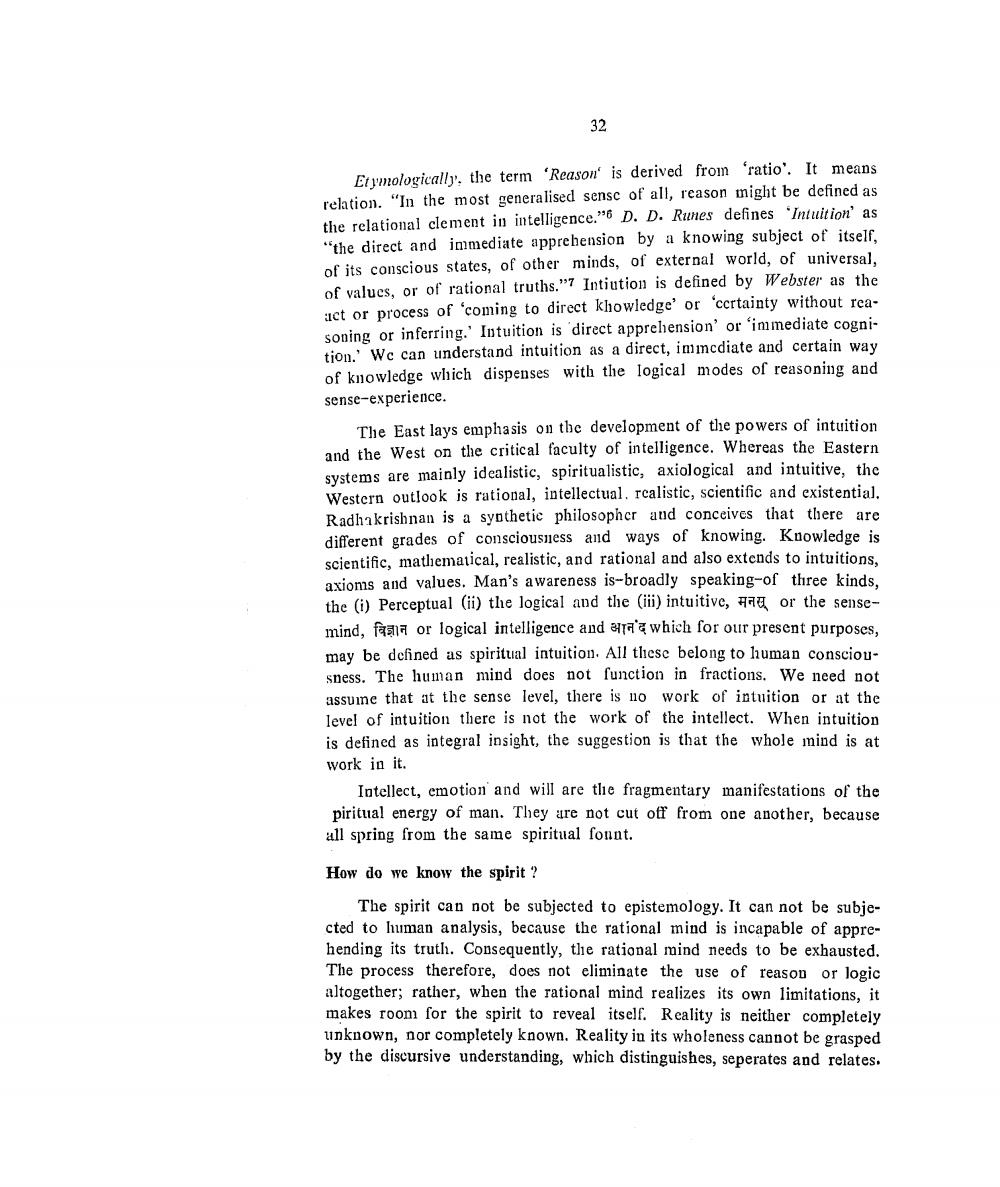________________
Etymologically, the term 'Reason' is derived from ratio'. It means relation. "In the most generalised sense of all, reason might be defined as the relational clement in intelligence."6 D. D. Runes defines "Intuition as "the direct and immediate apprehension by a knowing subject of itself, of its conscious states, of other minds, of external world, of universal. of values, or of rational truths."7 Intiution is defined by Webster as the act or process of 'coming to direct khowledge' or 'certainty without reasoning or inferring.' Intuition is direct apprehension' or 'immediate cognition. We can understand intuition as a direct, immcdiate and certain way of knowledge whiich dispenses with the logical modes of reasoning and sense-experience.
The East lays emphasis on the development of the powers of intuition and the West on the critical faculty of intelligence. Whereas the Eastern systems are mainly idealistic, spiritualistic, axiological and intuitive, the Western outlook is rational, intellectual realistic, scientific and existential. Radhakrishnan is a synthetic philosopher and conceives that there are different grades of consciousness and ways of knowing. Knowledge is scientific, mathematical, realistic, and rational and also extends to intuitions. axions and values. Man's awareness is-broadly speaking-of three kinds. the (i) Perceptual (ii) the logical and the (iii) intuitive, Hall or the sensemind, fana or logical intelligence and a which for our present purposes, may be defined as spiritual intuition. All tliese belong to human consciousness. The human mind does not function in fractions. We need not assuine that at the sense level, there is 110 work of intuition or at the level of intuition there is not the work of the intellect. When intuition is defined as integral insight, the suggestion is that the whole mind is at work in it.
Intellect, emotion and will are tlic fragmentary manifestations of the piritual energy of man. They are not cut off from one another, because all spring from the same spiritual fonnt.
How do we know the spirit ?
The spirit can not be subjected to epistemology. It can not be subjected to human analysis, because the rational mind is incapable of apprehending its truth. Consequently, the rational mind needs to be exhausted. The process therefore, does not eliminate the use of reason or logic altogether; rather, when the rational mind realizes its own limitations, it makes room for the spirit to reveal itself. Rcality is neither completely unknown, nor completely known. Reality in its wholeness cannot be grasped by the discursive understanding, which distinguishes, seperates and relates.




